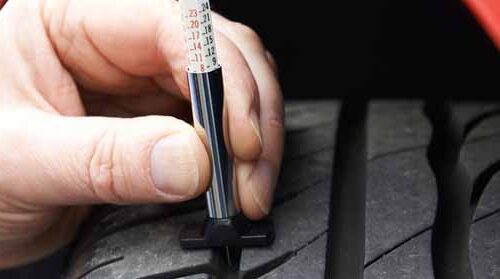Commercial drivers treading dangerously

New research has found that company car and van drivers do not check their tyres regularly, and are often driving on tyres that are illegal, risking injury, a £2,500 fine and three points per tyre on their license.
This is according to Venson, which has published a white paper title ‘Tyres: From F1 Motorsport to Fleet’.
About 40% of tyres across Venson’s leased and managed vehicles have to be replaced prematurely every year due to tyre damage, with a bias towards light commercial vehicles, which account for around 60% of the company’s fleet.
Tyre manufacturers are ploughing millions of pounds into creating ‘intelligent tyres’ with the aim to remove the responsibility of checking tyre condition away from operators and drivers, in turn significantly reducing the of risk putting vehicle occupants and other road users in danger because of sub-standard tyre conditions.
Gil Kelly, operations director, Venson Automotive Solutions, said: “Research for our white paper suggests that ultimately technology is likely to remove the responsibility for tyre condition checks away from drivers. Intelligent tyres will be able to self-manage and thus remove the driver from any care requirement. For now, however, the most intelligent thing fleet operators and drivers can do is ensure that tyres are manually checked on a regular basis.”
Tyre industry recommendations are to check for excessive and uneven tread wear, damage and pressure every two weeks. Checks should be made while the steering wheel is on full lock, to check across the whole tyre width which should be a minimum of 1.6mm. Even at this tread depth the stopping distance doubles that of a brand new tyre.
Kelly added: “Tyres with a brain may seem a long way off but they are set to become a reality and will give the industry masses of information designed to maximise tyre longevity and reduce maintenance costs; music to the ears of any fleet manager. In the meantime though, it’s back to basics. While the pot-holed condition of the UK’s roads does no-one any favours, tyre damage is often due to driver induced errors, like kerbing tyres. That’s why it’s vital that fleets impress the importance of tyre checks on their drivers.”






